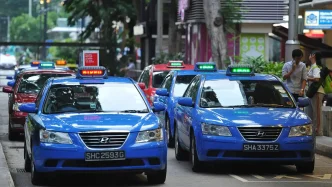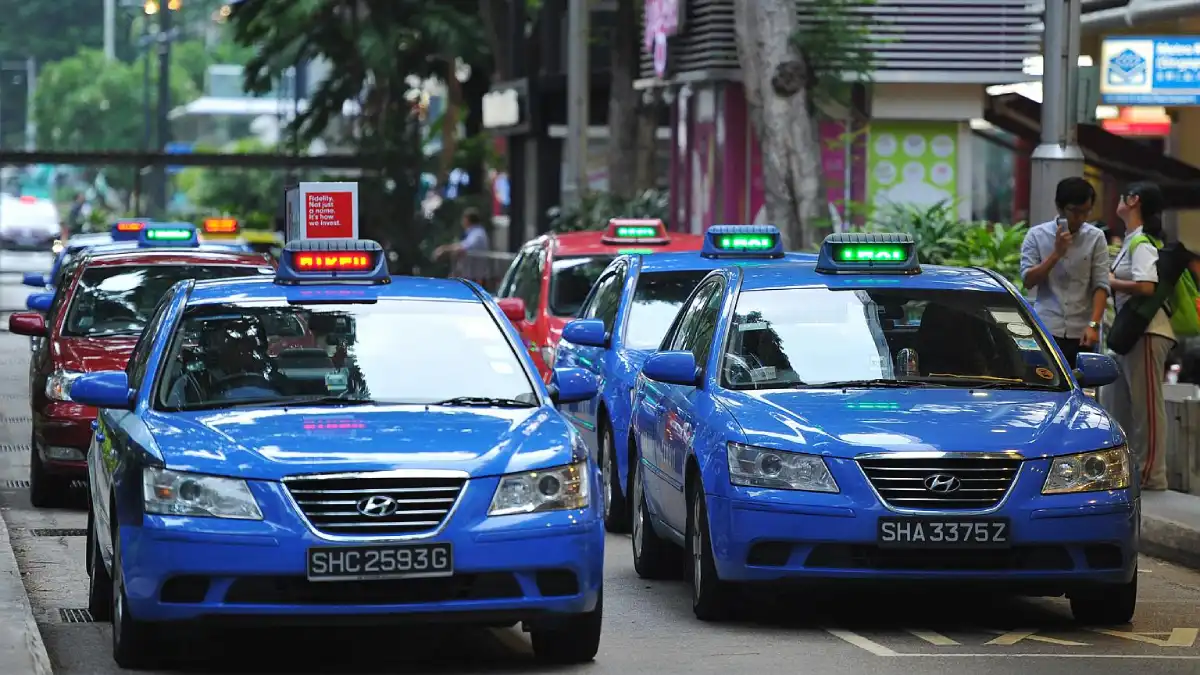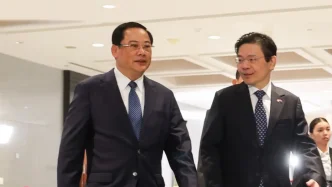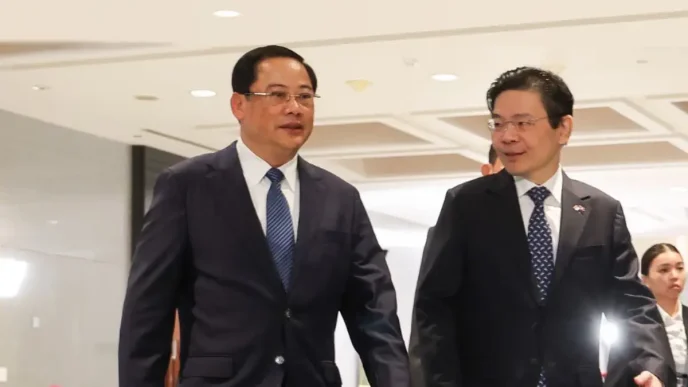Singapore’s recent efforts to curb illegal ride-hailing services, both within the city-state and across its border with Malaysia, have ignited a heated debate among drivers. The move, led by the Land Transport Authority (LTA), has seen vehicles detained and drivers questioned, with a particular impact on Malaysian workers who carpool across the border for work. While some see the enforcement as a necessary step to protect licensed operators and ensure passenger safety, others, especially Malaysian drivers, feel unfairly targeted for what they describe as informal cost-sharing arrangements rather than commercial ventures.
A Heavy-Handed Approach at the Border
On August 5, the LTA, in collaboration with the Immigration and Checkpoints Authority, conducted a significant operation targeting illegal ride-hailing services. The sting, which marked the first of its kind at a land checkpoint, resulted in the apprehension of 19 drivers at locations including Tuas Checkpoint, Gardens by the Bay, and Changi Airport. Vehicles suspected of providing unlicensed passenger transport were impounded, leaving drivers anxious about potential fines and the loss of their vehicles.
Since 2022, the LTA has caught 136 drivers offering illegal cross-border transport services. Those convicted have faced fines of up to $2,600 and, in some cases, forfeiture of their vehicles. The authority’s rationale is clear: unlicensed operators lack the necessary permits and insurance to carry passengers, posing risks to public safety and undermining the livelihoods of legitimate drivers. Senior Minister of State for Transport Sun Xueling emphasized this point in a social media update on August 6, noting that such services endanger passengers and harm licensed operators who comply with regulations.
Yet for many Malaysian drivers, the crackdown feels like an overreach. These individuals, often commuting daily to Singapore for work, argue that their arrangements are not commercial enterprises but rather mutual agreements to share costs with friends or colleagues. The detentions at checkpoints like Tuas have left them frustrated and fearful of severe penalties, despite their insistence that they are not operating for profit.
Malaysian Drivers Caught in the Crossfire
The personal stories of affected drivers highlight the human cost of the enforcement drive. One Malaysian driver, identified only as Mr. Tan, described his ordeal after being detained at Tuas Checkpoint for several hours. He explained that he regularly drives friends who live near him in Skudai to and from work in Singapore, splitting the cost of petrol and the vehicle entry permit, which amounts to $35 per day. His multi-purpose vehicle (MPV) was seized during the operation, and he now awaits the outcome of an investigation that could result in a fine of up to $3,000.
Mr. Tan stressed that his actions were motivated by camaraderie, not commerce. He argued that authorities should focus on those who operate illegal services for profit rather than targeting individuals like him who are simply helping out friends. Another driver, known as Mr. Chung, echoed similar sentiments after his family MPV was impounded. Based in Tebrau, he also carpool with friends to Singapore, accepting contributions for shared costs but not charging for door-to-door services. Like Mr. Tan, he has endured sleepless nights waiting for news on his case after being questioned for hours at the checkpoint.
These accounts reveal a broader tension between regulatory enforcement and the practical realities of cross-border commuting. For many Malaysian workers, Singapore offers better job opportunities, but the high cost of living and transport necessitates informal arrangements like carpooling. The LTA’s stringent measures, while aimed at curbing illegal operations, appear to have ensnared individuals who fall into a gray area of legality—neither fully commercial operators nor entirely private commuters.
A Boost for Licensed Operators
On the other side of the debate, licensed transport providers in Singapore have welcomed the crackdown. A limousine service operator, referred to as Mr. Ben, reported a significant uptick in business since the LTA’s operations began. His company now handles 25 to 30 additional trips daily, a sharp increase from the sporadic bookings of one or two trips every few days prior to the enforcement drive. He attributed this surge to the removal of competition from illegal Malaysian operators, who often undercut prices by as much as 40 percent.
Mr. Ben also highlighted the disparities in operational costs and safety standards. Licensed operators in Singapore pay higher insurance premiums to cover passengers both domestically and in Malaysia, whereas many illegal operators lack such coverage in Singapore. This not only poses a risk to passengers but also creates an uneven playing field for those who adhere to the law. For businesses like his, the LTA’s actions are a long-overdue correction to a market distorted by unregulated competition.
Navigating the Legal and Economic Divide
The issue of illegal ride-hailing services at the Singapore-Malaysia border underscores deeper economic and regulatory challenges in the region. Singapore, with its stringent laws and high operational costs, maintains a tightly controlled transport sector to ensure safety and fairness. Licensed drivers must obtain public service vehicle licenses, adhere to strict guidelines, and carry comprehensive insurance—requirements that come with significant financial burdens. In contrast, Malaysia’s less restrictive environment allows for more informal transport arrangements, which can spill over into Singapore through cross-border commuting.
This disparity creates a complex dynamic where economic necessity for Malaysian workers clashes with Singapore’s regulatory framework. Carpooling, a common practice to offset the costs of daily commutes, often blurs the line between personal favor and commercial activity. The LTA’s definition of illegal ride-hailing includes any unlicensed transport of passengers for payment, even if that payment is merely a shared cost rather than a profit-driven fare. This broad interpretation has led to the detention of drivers who argue they are not running businesses but simply helping out peers.
Economically, the crackdown also reflects Singapore’s broader efforts to protect local industries from external competition. The city-state’s transport sector, like many others, is designed to prioritize licensed operators who contribute to the economy through taxes and compliance costs. Illegal operators, by undercutting prices, not only threaten these businesses but also evade the financial obligations that come with legal operation. The LTA’s operations, therefore, serve a dual purpose: safeguarding public safety and preserving economic equity for those who play by the rules.
Regional Implications and Policy Questions
Beyond the immediate impact on drivers and businesses, Singapore’s enforcement actions raise questions about cross-border cooperation and policy alignment with Malaysia. The Johor-Singapore Causeway, one of the busiest border crossings in the world, facilitates the daily movement of thousands of workers, many of whom rely on shared transport to manage costs. While Singapore has the sovereign right to regulate activities within its borders, the targeting of Malaysian-registered vehicles at checkpoints could strain bilateral relations if perceived as overly punitive toward commuters.
One potential solution lies in clearer guidelines or exemptions for genuine carpooling arrangements. For instance, authorities could establish criteria to distinguish between informal cost-sharing among friends and commercial ride-hailing services. Such a framework might involve limits on the frequency of trips, the number of passengers, or the nature of payments. However, implementing and enforcing these distinctions would require coordination between Singaporean and Malaysian authorities, as well as robust mechanisms to prevent abuse.
Additionally, there is a need for greater public awareness about the legal boundaries of cross-border transport. Many Malaysian drivers, like Mr. Tan and Mr. Chung, appear to have been unaware of the risks associated with their arrangements until they were detained. Proactive communication from the LTA—such as warnings or educational campaigns at checkpoints—could help mitigate misunderstandings and reduce the likelihood of unintentional violations.
Looking Ahead: Balancing Enforcement and Empathy
As Singapore intensifies its efforts to clamp down on illegal ride-hailing, the challenge will be to balance strict enforcement with empathy for those caught in the crossfire. For Malaysian drivers, the stakes are high: the loss of a vehicle or a hefty fine can have devastating financial consequences, particularly for those already navigating the economic pressures of cross-border work. Meanwhile, licensed operators in Singapore rightly demand a level playing field to sustain their livelihoods.
The ongoing investigations into detained drivers will likely set important precedents for how similar cases are handled in the future. If the LTA opts for leniency in cases of non-commercial carpooling, it could signal a willingness to adapt policies to the realities of border communities. Conversely, a hardline stance may deter informal arrangements altogether, potentially pushing more workers toward public transport or licensed services at a higher cost.
For now, the debate over Singapore’s crackdown on illegal ride-hailing services remains unresolved, with valid arguments on both sides. As enforcement continues, the broader implications for cross-border mobility and economic fairness will come into sharper focus, demanding thoughtful solutions that address both safety and the human element of daily commutes.















